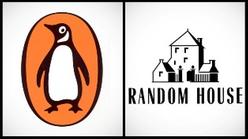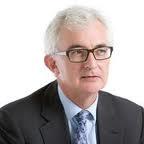 Four days after officially confirming that Pearson and Bertelsmann were in discussions about combining their book publishing operations, the companies announced this morning that they are creating a joint venture named Penguin Random House. Bertelsmann will own 53% of the joint venture, and Pearson will own 47%.
Four days after officially confirming that Pearson and Bertelsmann were in discussions about combining their book publishing operations, the companies announced this morning that they are creating a joint venture named Penguin Random House. Bertelsmann will own 53% of the joint venture, and Pearson will own 47%.
The deal scuttles a News Corp. £1 billion ($1.62 billion) offer to buy Penguin that News Corp.'s Times of London said yesterday was going to be made this week. Such a deal would have combined Penguin with News Corp.'s HarperCollins and would have been an outright purchase.
Except for Bertelsmann's trade publishing business in Germany--Verlagsgruppe Random House--Penguin Random House includes all trade publishing of Random House and Penguin worldwide. (Pearson will retain rights to use the Penguin brand in education markets.) The companies expect to complete the deal in the second half of next year; until then they will continue to operate separately. Bertelsmann and Pearson said that in the new company, "the publishing imprints of Random House and Penguin will continue to publish their books with the autonomy they presently enjoy, and retain their distinct editorial identities."
 Markus Dohle, currently CEO of Random House, will be CEO of Penguin Random House, and John Makinson, chairman and CEO of Penguin, becomes chairman of the joint venture. Bertelsmann will nominate five directors to the Penguin Random House board; Penguin will nominate four.
Markus Dohle, currently CEO of Random House, will be CEO of Penguin Random House, and John Makinson, chairman and CEO of Penguin, becomes chairman of the joint venture. Bertelsmann will nominate five directors to the Penguin Random House board; Penguin will nominate four.
In their announcements about the merger, the companies said that last year Random House had revenues of €1.7 billion (about $2.21 billion) and operating profit of €185 million ($241 million). Penguin had revenues of £1 billion ($1.62 billion) and operating profit of £111 million ($180 million) with total assets of £1 billion ($1.62 billion). The Penguin Random House combination is estimated to represent about 25% of trade publishing in the U.S. and U.K. and may have some antitrust difficulties. But in the initial report about the possible merger a week ago today, Manager Magazin in Germany said that the companies were already having detailed discussions with regulatory bodies in the U.S. and European Union.
Under the agreement, Pearson and Bertelsmann can't sell any part of their interest in Penguin Random House for three years. After five years, either partner may require an initial public offering of Penguin Random House. If Bertelsmann declines a Pearson offer to sell its 47% share, Pearson may require a recapitalization of Penguin Random House, under which the joint venture would raise debt of up to three and half times the company's EBITDA (earnings before interest, taxes, debt and amortization--a measure of income), with a shareholder dividend.
Bertelsmann chairman and CEO Thomas Rabe commented: "With this planned combination, Bertelsmann and Pearson create the best course for the future of our world-renowned trade-book publishers, Random House and Penguin, by enabling them to publish even more effectively across traditional and emerging formats and distribution channels. It will build on our publishing tradition, offering an extraordinary diversity of publishing opportunities for authors, agents, booksellers, and readers, together with unequalled support and resources."
Bertelsmann emphasized that the joint venture is "a significant step" in the implementation the four new strategic priorities that Rabe recently announced: "strengthening the core; digital transformation; the establishment of growth platforms; and the development of growth regions." Rabe said: "The combination of Random House and Penguin, first of all, significantly strengthens book publishing, one of our core businesses. Second, it advances the digital transformation on an even greater scale, and third, it increases our presence in the target growth markets."
For "its significance for our business and for the cultural resonance of our book publishing operations worldwide" Rabe compared the deal with the purchases of Random House in 1998, Doubleday in 1986, Bantam Books in 1977 and Goldmann Verlag, also in 1977. "Each of these steps was aimed at increasing the breadth and quality of Bertelsmann's publishing operations, as our new company will," he said.
Marjorie Scardino, who is stepping down as CEO of Pearson in January, commented: "Penguin is a successful, highly-respected and much-loved part of Pearson. This combination with Random House--a company with an almost perfect match of Penguin's culture, standards and commitment to publishing excellence--will greatly enhance its fortunes and its opportunities. Together, the two publishers will be able to share a large part of their costs, to invest more for their author and reader constituencies and to be more adventurous in trying new models in this exciting, fast-moving world of digital books and digital readers." John Makinson said: "All of us who work in book publishing experience every day the breathtaking pace of change in our industry. The partnership that we are announcing today will position Penguin Random House at the forefront of that change. Our access to investment resources will allow us to take risks with new authors, to defend our creative and editorial independence, to publish the broadest range of books on the planet, and to do it all with the attention to quality that has always characterized both our great companies."
John Makinson said: "All of us who work in book publishing experience every day the breathtaking pace of change in our industry. The partnership that we are announcing today will position Penguin Random House at the forefront of that change. Our access to investment resources will allow us to take risks with new authors, to defend our creative and editorial independence, to publish the broadest range of books on the planet, and to do it all with the attention to quality that has always characterized both our great companies."
And Markus Dohle said: "Our new company will bring together the publishing expertise, experience, and skill sets of two of the world's most successful, enduring trade book publishers. In doing so, we will create a publishing home that gives employees, authors, agents, and booksellers access to unprecedented resources. I deeply believe that the support and services that we will be able to offer, coupled with the creative and editorial independence that we will continue to maintain, will benefit everyone in the book publishing environment, especially our passionate readers from today's generation to the next."

